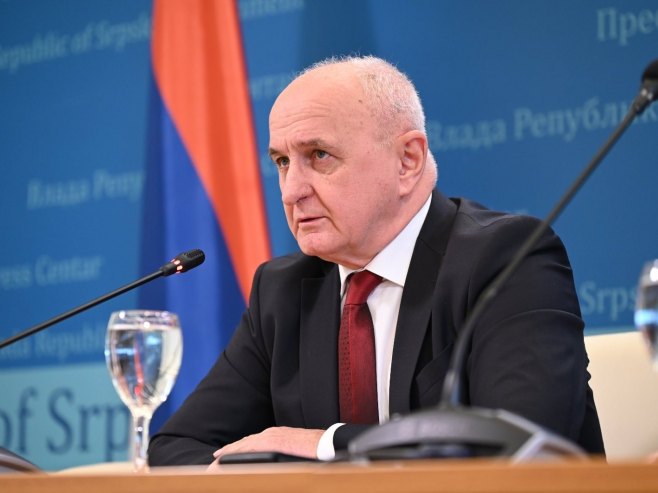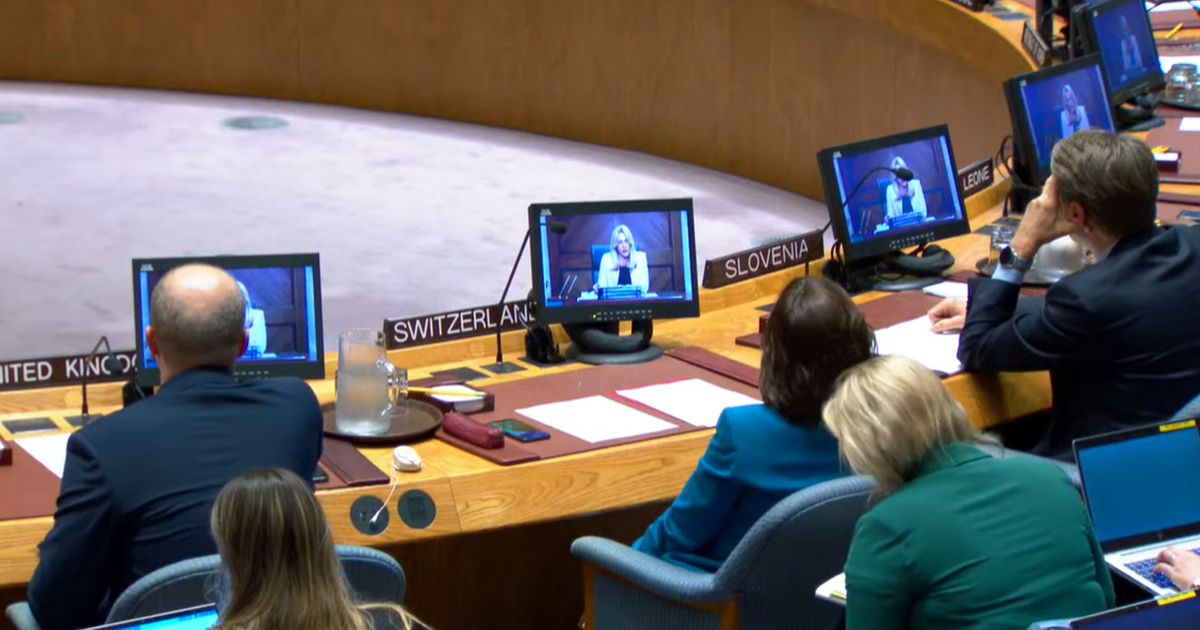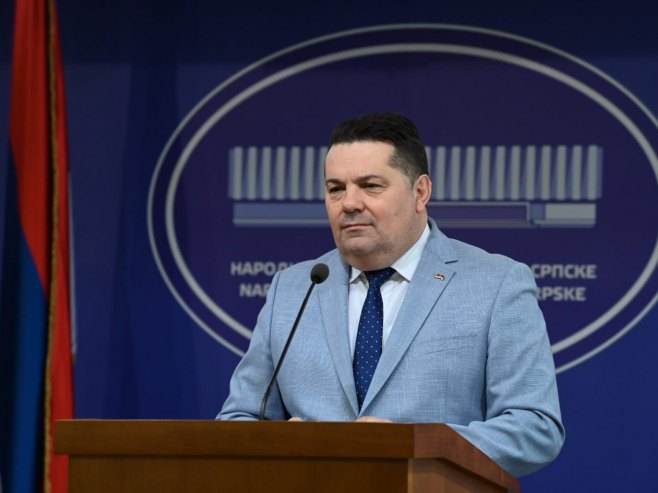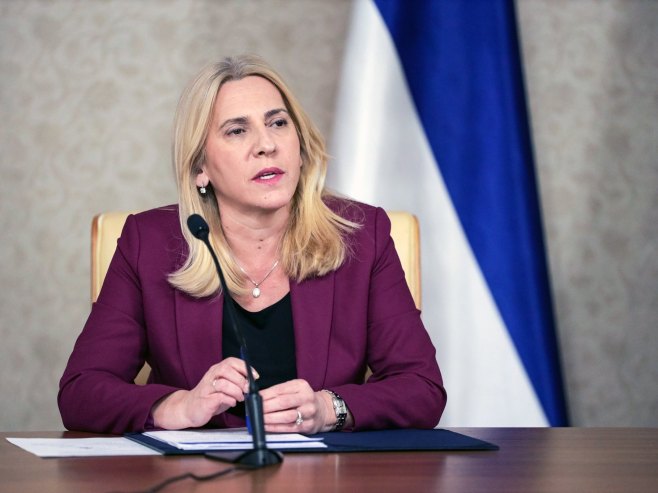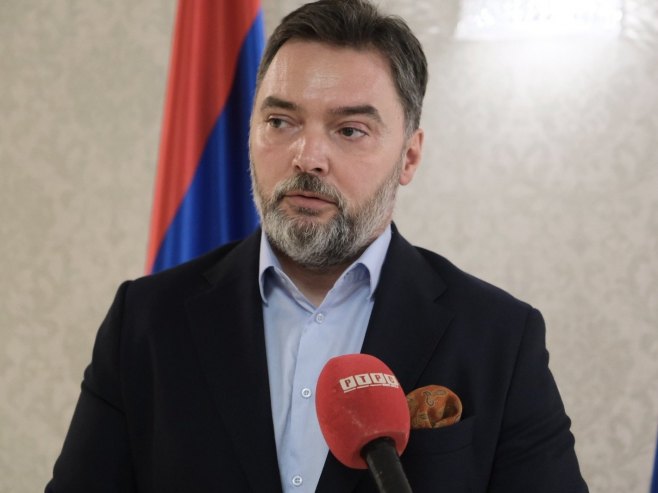In a video link address to a UN Security Council session reviewing the situation in Bosnia and Herzegovina (BiH), the Serb member of the BiH Presidency, Željka Cvijanović, highlighted several significant challenges currently facing peace and stability in the region.
“Many are utilized in various manipulations and are initiated by both foreign and domestic political actors who aim to ‘rewrite’ the Dayton Agreement, the Constitution of BiH, the laws of BiH, and international law. These threats to peace and stability can be categorized as follows,” she stated.
She pointed out the following challenges:
- Interference in internal political and democratic processes,
- Resorting to threats of force/violence,
- Disrespect for the rule of law and violations of international law,
- Interference in elections and disenfranchisement of voters.
Cvijanović elaborated on these challenges and threats.
“At the heart of every dispute within BiH lies a fundamentally contentious issue regarding the nature of the shared state. According to Dayton, as well as historically, BiH could only function through consensus-based decision-making, where each nation would be protected from being outvoted by the representatives of the other two nations. Unfortunately, while the Serb and Croat nations and their elected representatives consistently strive to respect the Dayton Agreement as it was written and signed, the Bosniaks and their representatives advocate for a unitary and centralized state,” she emphasized.
She noted that the Bosniak political goal of centralizing BiH is often supported and promoted by foreign actors in BiH.
“Through unlawful decisions and coercion, which successive High Representatives have resorted to over the years, the constitutional structure of BiH established by the Dayton Agreement has been significantly altered. Indeed, High Representatives have interfered in the internal democratic processes and the agreements of the elected and legitimate representatives of the constituent peoples and entities of BiH. High Representatives have, generally siding with Bosniak aspirations for a centralized state, violated essential provisions of the Dayton Agreement that envisage the protection and equality of the constituent nations, thereby endangering peace and security in BiH,” she believes.
She added that every sovereign state and all democratically elected officials enjoy protection from foreign interference in internal affairs, according to the United Nations Charter and numerous international treaties and regulations.
“Unfortunately, certain foreign diplomats in BiH and Christian Schmidt, posing as some hybrid of ‘colonial governor’ and typical despot, continuously and with increasingly destructive tendencies, interfere in the internal democratic processes and decision-making within BiH. This interference has undermined the political consensus at the common level of BiH, which has directed and encouraged BiH’s progress towards EU membership. Consensus on BiH’s EU membership is the only important issue that enables difficult compromises and agreement among all political forces of BiH and its elected leaders. As such, it is of fundamental importance for maintaining peace and stability within our shared state,” Cvijanović asserted.
She highlights that other foreign actors, such as the Peace Implementation Council, which is not part of international law as it is not envisaged by the Dayton Agreement, and individual diplomats accredited in BiH, have similarly meddled in internal affairs, thereby assisting the OHR in their unlawful actions, and now Schmidt.
“Even the resolution on the Day of Remembrance for Srebrenica proposed to the UN General Assembly is a blatant example of how foreign interference and disrespect for the Constitution of BiH undermine peace and stability. The draft resolution, authored by certain countries and the BiH Ambassador to the UN Zlatko Lagumdžija, completely disregards the Constitution of BiH and the Presidency of BiH, which is exclusively responsible for formulating the foreign policy of BiH. The Presidency has neither discussed nor adopted this draft resolution; moreover, there is no consensus among our peoples or at any level of government about the text of the resolution, which has been deliberately withheld and hidden from the public. Most of your countries know that this activity is contrary to the Dayton Agreement, but you have simply chosen to ignore this fact,” Cvijanović believes.
She states that some UN member states consider this resolution benign and a gesture of human compassion.
“However, it is clear that the intent behind it is anything but benign. Professor Francis Boyle, a legal advisor to Bosniak political leaders, last Friday, April 26, in an interview with a Sarajevo TV network, stated that after the adoption of the resolution in the UN General Assembly, all so-called ‘pro-Bosnian forces’ must unite to use it to abolish the Republika Srpska. This dangerous statement, unfortunately, reflects the prevailing intent of many Bosniak political leaders and clearly shows that the proposed resolution is destabilizing for peace and stability in BiH,” Cvijanović argues.
She notes that it is no wonder that this type of foreign meddling undermines negotiations and compromise within BiH, as it always favors one side – the Bosniak.
“While officials of Republika Srpska talk about the necessity of preserving peace and stability and resolving all open political issues in democratic institutions, certain threats and militaristic statements by Western ambassadors in Sarajevo seek to instill fear in the Serbs, while simultaneously giving hope to some radical forces in the Bosniak political leadership that NATO will ‘solve’ the ‘problematic’ Republika Srpska by abolishing it. Meanwhile, Bosniak officials, such as the Minister of Defense of BiH Zukan Helez and the Minister of Security of the FBiH Rame Isak, openly threaten violence and war. Among the many inflammatory statements by Minister Helez, the two most dangerous are: the creation of ‘reserve’ military forces in BiH, and the call for the introduction of ‘military training’ in schools in BiH. Minister Isak, on the other hand, has stated that he will ‘lead 10 corps’ when Republika Srpska is being abolished,” Cvijanović considers.
She emphasizes that such threats and calls for violence are rarely condemned by Schmidt and foreign ambassadors.
“It should also be noted that the current threat from radical Islamic terrorist cells represents a danger not only to peace in BiH and the Western Balkans but also throughout Europe. Just two weeks ago, police forces arrested an individual in Zenica suspected of belonging to a radical Islamist group in the FBiH. Local media in BiH recently reported that Minister Helez approved the use of Armed Forces of BiH training grounds in Mostar by foreign nationals and certain locals associated with the radical Wahhabi movement,” Cvijanović pointed out.
She indicated that this is particularly dangerous and irresponsible since “BiH has been marked as the most dangerous source of jihadist terrorism in Europe in foreign media and international security reports for many years.”
“Concerns about terrorist threats emanating from BiH have been noted by many Western governments and other sources. For example, the U.S. State Department last year wrote: ‘Terrorist groups continue to plan possible attacks in BiH.’ French President Emmanuel Macron, in 2021, speaking about the presence of jihadists in BiH, called the country a ‘ticking time bomb.’ According to data published by the Wilson Center in Washington, BiH had the highest number of citizens who went to wage jihad in Syria and Iraq among European countries. As we all know, the rule of law is one of the basic conditions for peace and democratic governance. Unfortunately, it is persistently violated and ignored in BiH, especially by Schmidt and his helpers and accomplices from certain foreign embassies,” Cvijanović noted.
Source: RTRS

